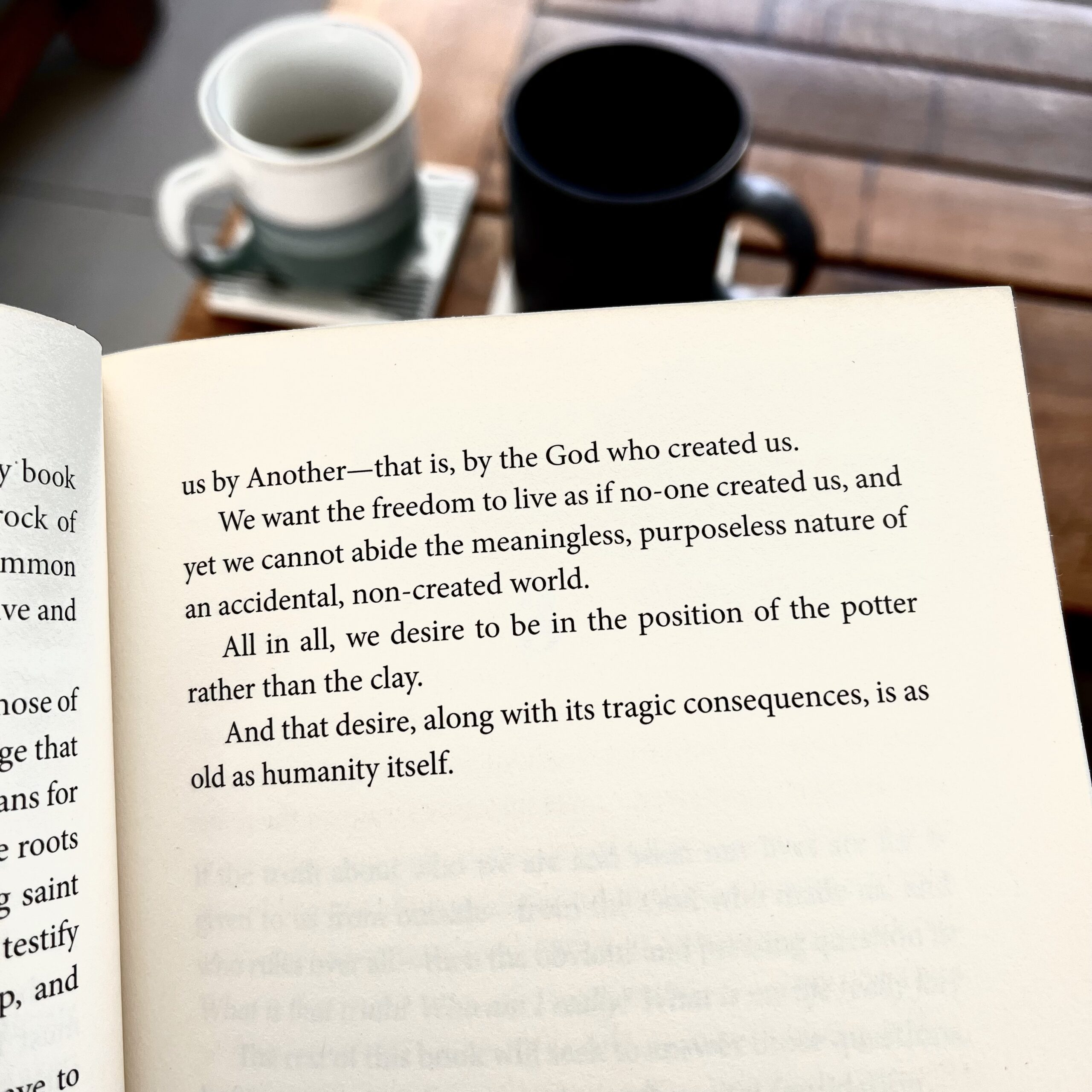
Most mornings, Stacy and I try to make time before the kids are up to spend in devotions—scripture reading, an inspirational book, and prayer. I say “most mornings” because, as we all know, stuff happens. Our best-made plans often miss the mark, if not entirely. We’re adapting to a new culture and new routines. Our day is a full schedule: homeschooling, meals, emails, coffee meetings, and WhatsApp messages. There are days when all goes smoothly and others when it all falls apart. We make our perfect plans; then, there’s a tropical downpour, or construction blocking the exit to our apartment, or the truck won’t start, or it’s hot (really hot, 107 degrees hot!), or the kids are in bad moods, or the neighbors are blasting Reggaeton…or, or, or. The ors go on and on. Then we blame ourselves for falling short, thinking, “If only we had,” all because we didn’t meet the standard we set for ourselves—our expectations, not God’s. The ensuing chaos is easily misinterpreted as the result of our failings; and in so doing, we miss a huge opportunity. God is there, speaking to us through the upheaval. Sometimes God allows chaos because amid chaos is when we’ll truly see Him doing His work.
I’m three chapters into a new book given to me by a close friend, The Thing Is by Tony Payne. It’s about purpose, about making sense of our lives. You might be thinking to yourself, “What?! A missionary struggling with purpose?!” Don’t be surprised, it’s more common than you think. I’ve spoken with many missionaries and pastors who question their purpose—just like everyone else. Would my life be easier if I was in control and charting my course, even in ministry? In his book, Payne writes,
We desire to be in the position of the potter rather than the clay.
And that desire, along with its tragic consequences, is as old as humanity itself.
Putting my wishes and wants aside and giving God control is admittedly difficult. I have to choose to do so daily (Luke 9:23). What happens when I think I finally see the big picture and He changes the design?
Consider Jeremiah 18:1-4. In this passage, the prophet goes to a potter’s house and finds him working at his wheel. While sculpting, the potter discovers a defect in his work. What does he do? Does he toss the piece into a bin and start over with fresh clay? Not at all. The master craftsman reshapes the clay by hand, reworking the vessel to remove the defect. The clay has no say in this. The potter could easily call it good enough; after all, even an ugly, misshapen cup can still serve its purpose. And what’s more, the potter is spending valuable time on this capable albeit imperfect pot when he could be making more and more pots to benefit more and more people. Is this the best use of his valuable time and skill? Does the potter care that much about a single, flawed pot when there are so many other troubles in the world? If the clay had its way, I’m sure it would choose to be fired and finished and made useful—blemish and all—doing what it was created to do: hold water. Imagine the impatience of the clay as the potter forms it nearly to completion and then decides it’s not yet perfect—it needs a little more work.
Payne is right. If we’re honest, we’ll admit we usually want to be the potter. Our lives would be easier if we were molded into what’s most comfortable for each of us. Even when we let God do His work, we watch over His shoulder and add our critiques. “That’s nice, God…but here’s how I would do it?” Have you ever felt that way? I know I have, and it’s clearly at odds with Christ’s words, “Your kingdom come, your will be done” (Matt 6:10). I find this scripture in Jeremiah deeply personal. As an artist, I enjoy the process of creating, the thrill of seeing a project come to life, and the excitement of sharing it with others. Mistakes are always made when first developing characters, plots, sketches, and musical compositions. For quality’s sake, the mistakes are repaired and polished. But fixing such flaws can also become an obsession and the feeling that the work is never good enough. It would be awful to have a character from one of my novels reading over my shoulder, watching my every keystroke, criticizing me while explaining how she’d prefer to be written. It’s my privilege as the author to tell the story, not the character I’m writing about.
After many years of being shaped and reshaped and reshaped again, this is what I know: my purpose isn’t found in what I do with my hands, not what I create, nor found working in ministry. To the contrary, my purpose is found in Christ Jesus and Him alone. He is my potter—I am His well-kneaded clay. The choice to be here in Santiago de los Caballeros, sitting at my desk writing this journal as the sounds of the city flood in through the open windows: that’s a byproduct of my purpose. The love God has given me for my Haitian and Dominican neighbors and the work we do with our ministry partners: another byproduct. So, when my plans and routines fail, when the chaos erupts, I’m confident that it’s the potter putting in a little more work, making me more and more to His liking. It’s Him pouring in so that I can pour out.
I pray the same for you as you read this. I pray that when chaos finds you, you can look beyond the circumstances and rest in the knowledge that THE master craftsman is hard at work in your life, making you the vessel He needs according to His perfect will and purpose. Amen.
-Tim